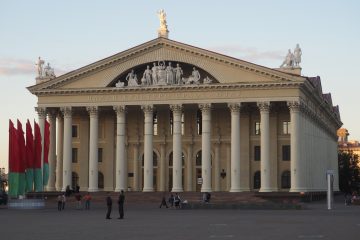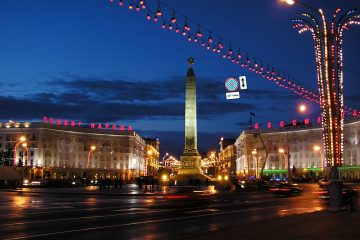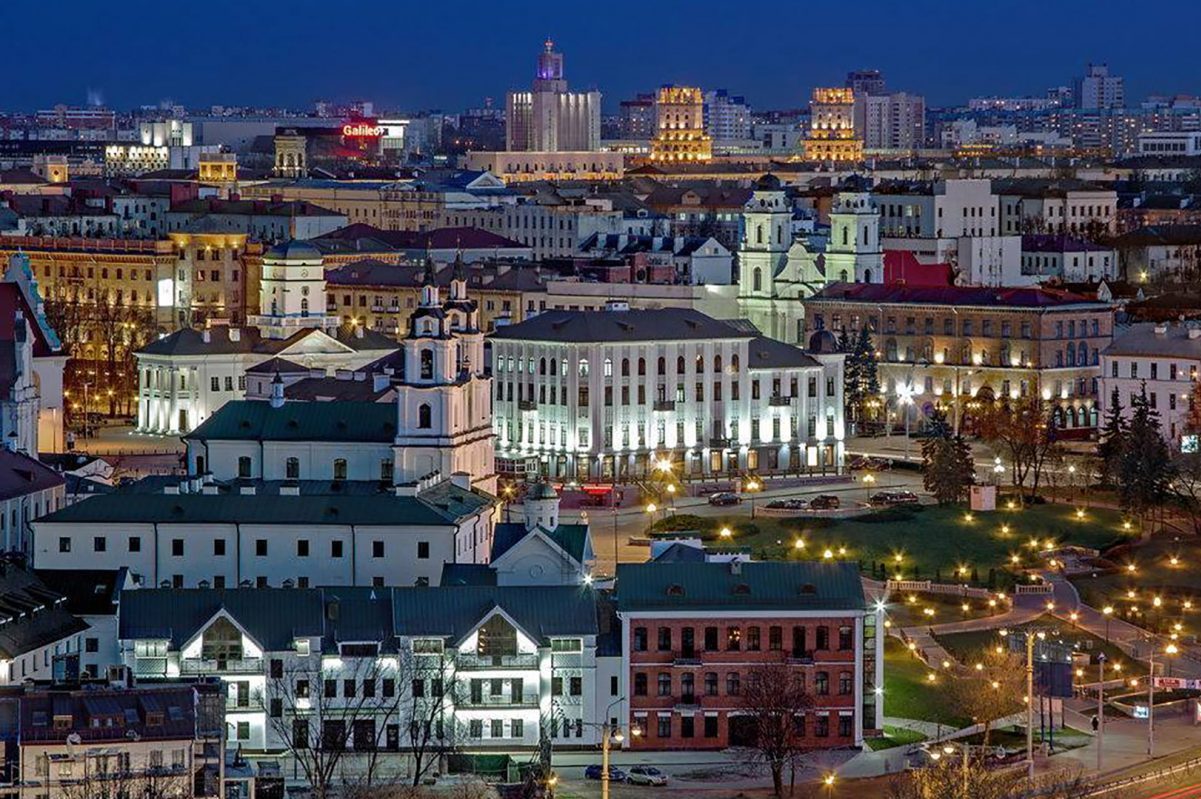2010 Strategy report on Belarus
Situation analysis and political recommendations
The regime under pressure over its foreign policy. The upcoming presidential elections in Belarus, which are set to take place on 19th December 2010, are being overshadowed by a substantial deterioration in the relationship between the country and its president Alexander Lukashenko with Russia, by a tense financial and economic situation, and by an ambivalent approach to the European Union. On the eve of the elections, repressive acts of power against dissidents and members of the opposition are also on the increase. Given free and fair elections, a joint candidate for the political and civil society opposition could possibly have a real chance of emerging victorious from the elections for the first time since Lukashenko took power in 1994. Unification of the opposition behind one candidate does, however, appear very improbable. Privileges afforded to Belarus, such as the access for its goods to the Russian market and the rates for gas deliveries to Belarus, which are favourable when compared with prices on the international market, are being dismantled by Moscow step by step. Compared with 2005, the price for Russian gas deliveries to Belarus has quadrupled. The current price stands at 193-194 USD per 1000 cubic metres of gas. In 2005 it was at 48.6 USD. On top of these burdens, the government and the economy have had to deal with the international financial crisis, the regression of economic performance, and the reduction of Russian subventions for Russian oil deliveries to Belarus. The pressure for economic reform is growing. Moscow is pushing the capital takeover of slices of the Belarusian economy by Russian companies. Lukashenko is essentially resisting this pressure – but for how much longer? Moscow is using the media to portray Lukashenko in a negative light and thereby to nurture negative public opinion of the Belarusian ruler who was previously recognised as a “true friend”. Recognising the state independence of the two Georgian provinces, South Ossetia and Abkhazia, as is also demanded by Belarus, would add weight to Moscow’s pretensions of influence over the post-Soviet space and raise doubts over the long-term nature of Belarus’ own independence. The campaign “Speak the Truth”, which has been run in Belarus since February 2010 using considerable financial resources and which, since September, is also putting forward its own candidate for the presidency in Uladzimir Nyaklyayev, is a sign of financial backing coming from Russia and the campaign could not be run without Russian toleration. The power to further tighten the screw lies in Russia’s hands. Belarus and the “Eastern Partnership” of the European Union In spite of grave deficiencies in its democratic transformation process, Belarus has, for reasons of ensuring a coherent regional political approach, also become a participant in the “Eastern Partnership”, initiated on 7th May 2009 at the EU summit in Prague. For the European Union and other European institutions such as the Council of Europe and the OSCE, the development of democratic state and society structures in the succession states of the Soviet Union, which include Belarus, continues to be an important goal of the Eastern Partnership. The first session of the Civil Society Forum of the Eastern Partnership, which took place in Brussels on 17th November 2009 and which will be continued in November 2010, developed the following demands for Belarus and other Eastern European participant countries:
- ease of registration for non-governmental organisations
- fair and free elections
- freedom of the press and
- an end to the political and penal persecution of the regime’s political enemies.
The European institutions were called upon to remove discrimination when dealing with visas and in particular to make it possible for young people to unrestrictedly enter the European Union for training and development programmes, and for internships. The results of the consultations have not only been and will not only be presented to the European Commission and the Council of Europe, but also by selected representatives of the forum to the various platforms of the Eastern Partnership. In this way, they have made it onto the agenda of the multilateral institutions of the partnership, on which government representatives sit. The first report of this kind was given by the Belarusian speaker of the forum, Sergej Matskiewitsch, on behalf of the Civil Society Forum of 17th November 2009. The ministers’ congress of the Eastern Partnership will make at the interim evaluation in spring 2011. The European Union will have to strengthen its political, financial and civil society commitment to the Eastern Partnership in order to provide credibility and sustainability to the future economic perspectives and the transformations in the societies of the participant Eastern European countries. In the absence of visible and sustainable steps on the long road to democratic transformation, the Partnership and Cooperation Treaty between the European Union and Belarus, agreed upon in 1995, has been put on ice since the constitutional coup by Lukashenko in November 1996. Similarly, the European Union has so far rejected calls for a relaxing of visa restrictions for Belarus. The goal of greater freedom of movement, which the Eastern Partnership is striving for, is finally creating the opportunity for negotiations on relaxing visa restrictions, including with Belarus. The EU Council of Ministers instructed the Commission to prepare negotiations with Belarus on 17th November 2009. Whilst Belarus has brought its financial economy onto a course of reform by using IMF-loans and therefore also under pressure from this international organisation, the modernisation of Belarusian industry remains rooted to the spot. Reform of the political and legal framework, which is a prerequisite for industrial regeneration, seems to be irreconcilable with the freedom the authoritarian regime allows itself. In the field of human rights, the situation remains unsatisfactory from the point of view of the European institutions:
- death sentences continue to be put into practice
- elections continue to be subject to blatant manipulation
- non-governmental organisations with an agenda targeting democratic transformation and the respect of human rights, and with foreign contacts, are discriminated against and their actions are obstructed
- demonstrations are kept under control or prevented from taking place by taking administrative action, such as passing short prison sentences
- the regime’s media monopoly (television, radio, daily newspapers) continues to exist. Relaxation towards a few media outlets remain the exception, and
- the freedom of teaching and research remains a pious wish. The pressure on scientists and scientific opinion research institutes is growing. The boycott of the independent university exiled from Minsk – the European Humanistic University – continues. The work of the Jakob-Kolas-Gymnasium, which teaches in the Belarusian language, can only continue on a provisional basis.
- The guidelines for school lessons continue to be dominated by the socialist ideal – giving priority to the collective ahead of the individual – even if the transfer to further education according to the Bologna model now seems to have been decided upon. Arbitrary decisions by administrative bodies create uncertainty amongst teaching staff.
Policy recommendations In view of Belarus’ unstable international situation, it is recommended that the European Union develop and follow a dual strategy: This must, firstly, be focused on the development of economic relations within the framework of the Eastern Partnership and on a bilateral level, in order to further the modernisation of Belarusian industry and agriculture, without freeing the regime from its obligation to undertake democratic reforms as lain out in the Charta of Paris in November 1990. Secondly, the dual strategy must aim towards integrating the existing bi- and multilateral cooperation agreements between various structures of Belarusian civil society into those of the EU member states – and this must take place independent of the development of relations at the state level. Within the framework of the Eastern Partnership, acts of cooperation with platforms which include government members should be used to help further the rule of law and social justice, as well as to promote training and citizen exchange programmes. This includes specifically:
- issuing visas free of charge
- development of domestic election monitoring
- training programmes and internships for young Belarusians in all fields,
- integration of civil society initiatives on both sides (e.g. the federal government incentive programme),
- Belarus conferences in the areas of science, civil society and politics,
- the appointment of representatives for cooperation with Belarusian civil society in both the European Union and its member states.


